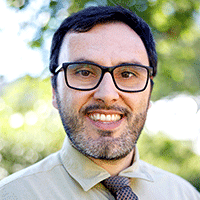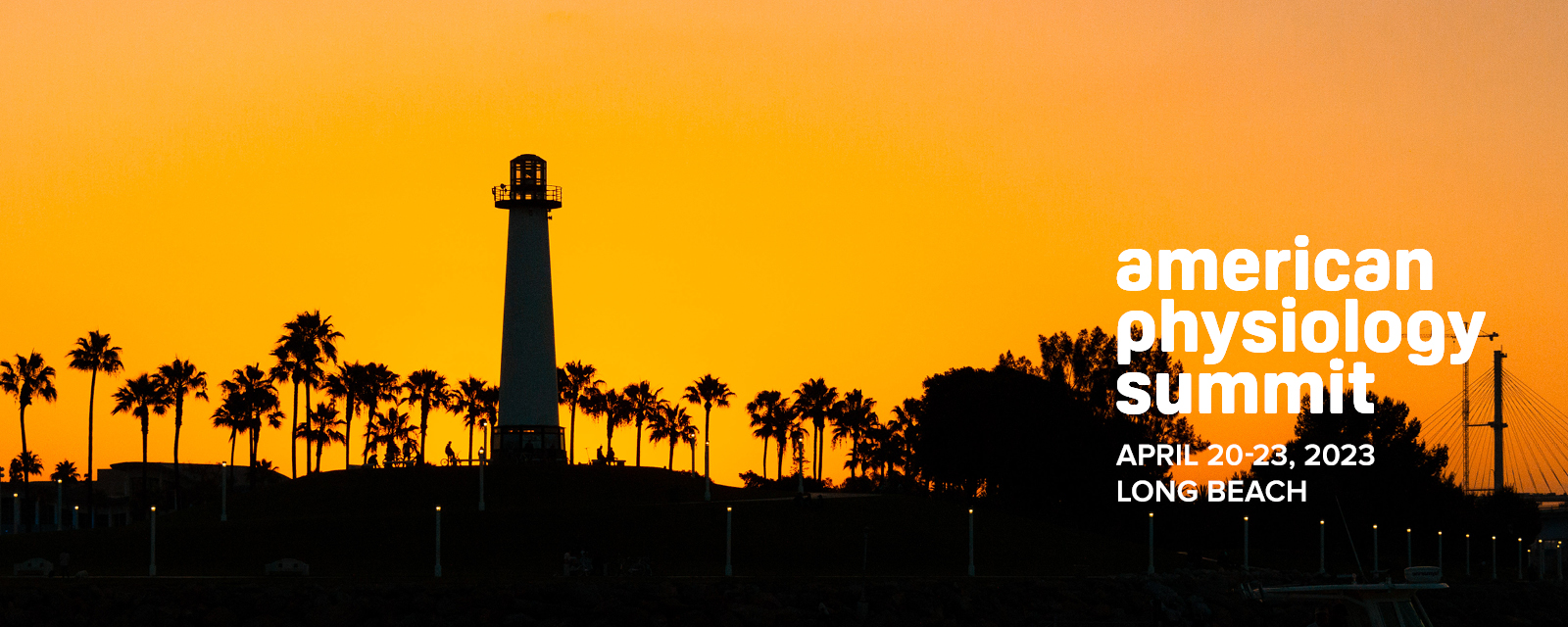- Membership & Community
-
Publications & News
- Journals
-
Newsroom
-
The Physiologist Magazine
- 2019
- 2020
- 2021
- 2022
- 2023
- 2024
- In Depth
-
Mentoring Forum
- Net Worth
- Take Care
- You … In Charge
- Work. It. Out.
- Working Off-site
- Location, Location, Location?
- Student Support
- Progressing to Postdoc
- Relationship Building
- Let’s Get It Started
- What Do We Value?
- It’s a Postdoc Life
- Coronavirus Contributions
- Creative Communications
- Selection Process
- Conference Connections
- Postdoc Appreciation
- Research Rewards
- Focus on Teaching
- Industry Insights
- Balance Beam
- Post Postdoc
- If You Build It
- Talk It Through
- Forward Bound
- I’ve Earned My PhD. Now What?
- University Life
- Tips for Trainees
- Time Travel
- Policy IQ
- Publish with Polish
- Under the Microscope
- Mentoring Q&A
- The Physiologist Magazine Readers Survey
- Evolution
- Baseline by Scott Steen, CAE, FASAE
- Find Us on Social Media
-
The Physiologist Magazine
-
Professional Development
-
Meetings & Events
-
American Physiology Summit
- #APS2024 Overview
- Abstracts
- Awards at the Summit
- Award Lectures
- Career Networking Lunch Form
- Dates and Deadlines
- Hotel Information
- Industry Partners
- Keynote Speaker—Brian Kobilka, MD
- Keynote Speaker—Jessica Meir, PhD
- Mobile App
- NIH and NSF Program Officer Panel Discussion Form
- Off-site Summit Meetups
- Physical Poster Information
- PhysioHub
- Pre-Summit Events
- Registration
- Section & Group Banquet Tickets
- Speaker Audiovisual Instructions
- Summit FAQs
- Summit Newsroom
- Summit Store
- Travel & Transportation
- Undergraduate Program Book
- Liability Waiver
- Summit Call for Proposals
- Industry Partners
- Martin Frank Diversity Travel Award Orientation Agenda
- Martin Frank Diversity Travel Award Networking Luncheon Agenda
- Women in Physiology Networking Event Agenda
-
2023
- APS 2023 Call for Proposals
- Shocklogic Test
- Team 2023 Task Force
- Shaping the Summit
- Schedule at a Glance
- Pre-Summit Events
- Pre-Summit Center for Physiology Education Workshop Registration
- Section & Groups Banquet Tickets
- Summit Store
- Pre-Summit Center for Physiology Education Workshop
- Press Registration
- Meet the Organizers
- Keynote Speaker—Terrie Williams, PhD
- Keynote Speaker—David Julius, PhD
- Industry Workshop Information
- Important Dates and Deadlines
- Hotel Information
- Game Changers
- Distinguished Lecturers
- Building APS 2023
- Awards at the Summit
- 2023 Summit Information
- American Physiology Summit Program
- 2023 Summit Newsroom
- 2024
- Scientific Integrity Policy
- From Concept to Classroom
- Webinars
- Related Meetings
- Future APS Conferences
-
Past APS Conferences
- APS Institute on Teaching and Learning
- Integrative Physiology of Exercise
- Seventeenth International Conference on Endothelin (ET-17)
- New Trends in Sex and Gender Medicine
- APS Institute on Teaching and Learning (2022)
- Control of Renal Function in Health and Disease Conference
- Comparative Physiology: From Organisms to Omics in an Uncertain World
- Conference Policies
-
American Physiology Summit
- Awards
-
Career & Professional Development
-
Career Gateway
-
Resources
- Transcript—Leading Through Conflict and Difficult Conversations
- Transcript—Managing Conflict with Colleagues
- Transcript—Leading a Team Through Conflict
- Transcript—Providing Difficult Feedback
- Transcript—Team Dynamics and Culture Primer
- Transcript—Building a Team
- Transcript—Leading a Team Assigned to You
- Transcript—Creating a Team Culture
-
Resources
- Career Navigator
- Center for Physiology Education
- Job Board
- Mentoring
- APS Graduate Physiology & Biomedical Science Catalog
-
Career Gateway
-
Meetings & Events
-
Advocacy & Resources
- Policy Areas
-
Resources
- Researcher Resources
- Educator Resources
- Trainee Resources
- Student Resources
-
APS Graduate Physiology & Biomedical Science Catalog
- Augusta University
- Des Moines University
- East Tennessee State University
- George Washington University
- Louisiana State University Health Sciences Center Shreveport
- Mayo Clinic Graduate School of Biomedical Sciences—Biomedical Engineering & Physiology
- Medical College of Wisconsin
- Michigan State University
- New York Medical College
- Nova Southeastern University
- Pennsylvania State University
- Saint Louis University
- Texas A&M University
- Texas A&M University Medical Physiology
- Stony Brook University
- The University of Iowa
- The University of Mississippi Medical Center
- University of Alabama at Birmingham
- University at Buffalo
- University of Colorado
- University of Delaware
- University of Florida
- University of Louisville
- University of Michigan
- University of Minnesota
- University of Missouri-Biomedical Sciences
- University of Nebraska Medical Center
- University of Oregon
- University of South Carolina School of Medicine
- University of Tennessee Health Science Center (UTHSC)
- University of Texas Health Science Center
- Virginia Commonwealth University
- Wayne State University
- Wake Forest University
- Physiology Department Catalog Submission Form
- Career Gateway
- Diversity, Equity & Inclusion
- Advocacy
- About APS
Researchers also identified the neurovascular mechanisms responsible for the evening benefit

Long Beach, Calif. (April 18, 2023)—A new study of elderly patients showed that those who exercised in the evening experienced a greater decrease in blood pressure compared to those who exercised in the morning. The work also revealed the neurovascular mechanisms responsible for these findings. Researchers will present their work this week at the American Physiology Summit, the flagship annual meeting of the American Physiological Society (APS), in Long Beach, California.
“Elderly patients or those with resistant hypertension or obesity don’t always experience as much blood pressure benefit from exercise as other groups,” said the study’s first author Leandro Brito, PhD, a postdoctoral fellow at the Oregon Health & Science University. “For these patients, finding a more beneficial time to exercise may reduce their need for medication or help it work better.”
The study, which was conducted when Brito was a postdoctoral trainee at the University of São Paulo in Brazil, included 23 older adults with hypertension, all of whom were taking prescribed blood pressure medication for at least four months. The participants exercised three times a week for 10 weeks by cycling on a stationary bike. One group exercised only between 7 and 10 a.m. and the other group only exercised between 5 and 8 p.m.
The researchers found that although diastolic blood pressure decreased similarly in both groups, systolic blood pressure only decreased after evening exercise. The investigators also measured the autonomic functions—nervous system functions that regulate involuntary physiologic processes—that control blood pressure in each group. The results showed that an improvement in the neural responses to changes in blood pressure—known as the arterial tonus—was responsible for the greater blood pressure benefit from evening exercise.
“Although any exercise is always better than no exercise, people who need to achieve faster regularization of blood pressure or who don’t see benefits from exercise might want to try working out in the evening,” Brito said. “These findings replicate what we found in a previous study of middle-aged men with hypertension on blood pressure medicine, but now we understand the neural mechanisms that contribute.”
The researchers are now looking into how the body’s biological clock might contribute to these findings.
This work will be featured in a virtual press conference from 1:30–2:15 p.m. EDT (10:30–11:15 a.m. PDT) on Tuesday, April 18, 2023 (register to attend).
NOTE TO JOURNALISTS: The American Physiology Summit will be held April 20–23, 2023, in Long Beach, California. To schedule an interview with the researchers, conference organizers or presenters, contact APS Media Relations or call 301.634.7314. Find more highlights from the meeting in our Summit Newsroom.
Physiology is a broad area of scientific inquiry that focuses on how molecules, cells, tissues and organs function in health and disease. The American Physiological Society connects a global, multidisciplinary community of more than 10,000 biomedical scientists and educators as part of its mission to advance scientific discovery, understand life and improve health. The Society drives collaboration and spotlights scientific discoveries through its 16 scholarly journals and programming that support researchers and educators in their work.
Related Content
- Researchers are One Step Closer to Preventing Preeclampsia
- Women Lose More Muscle than Men in Spaceflight, Additional Sex-specific Research Needed
- American Physiological Society Announces 2024 Award Recipients
- Robert Carroll Receives Inaugural APS Presidential Outstanding Service Award at American Physiology Summit
- Intermittent Fasting May Help Preserve Intestinal Health as We Age
- Nose Breathing Lowers Blood Pressure, May Help Reduce Risk Factors for Heart Disease
- Sit All Day? Periodic Squatting Exercises May Help Preserve Your Brain Power
Contact Us
For questions, comments or to share your story ideas, email us or call 301.634.7314.

